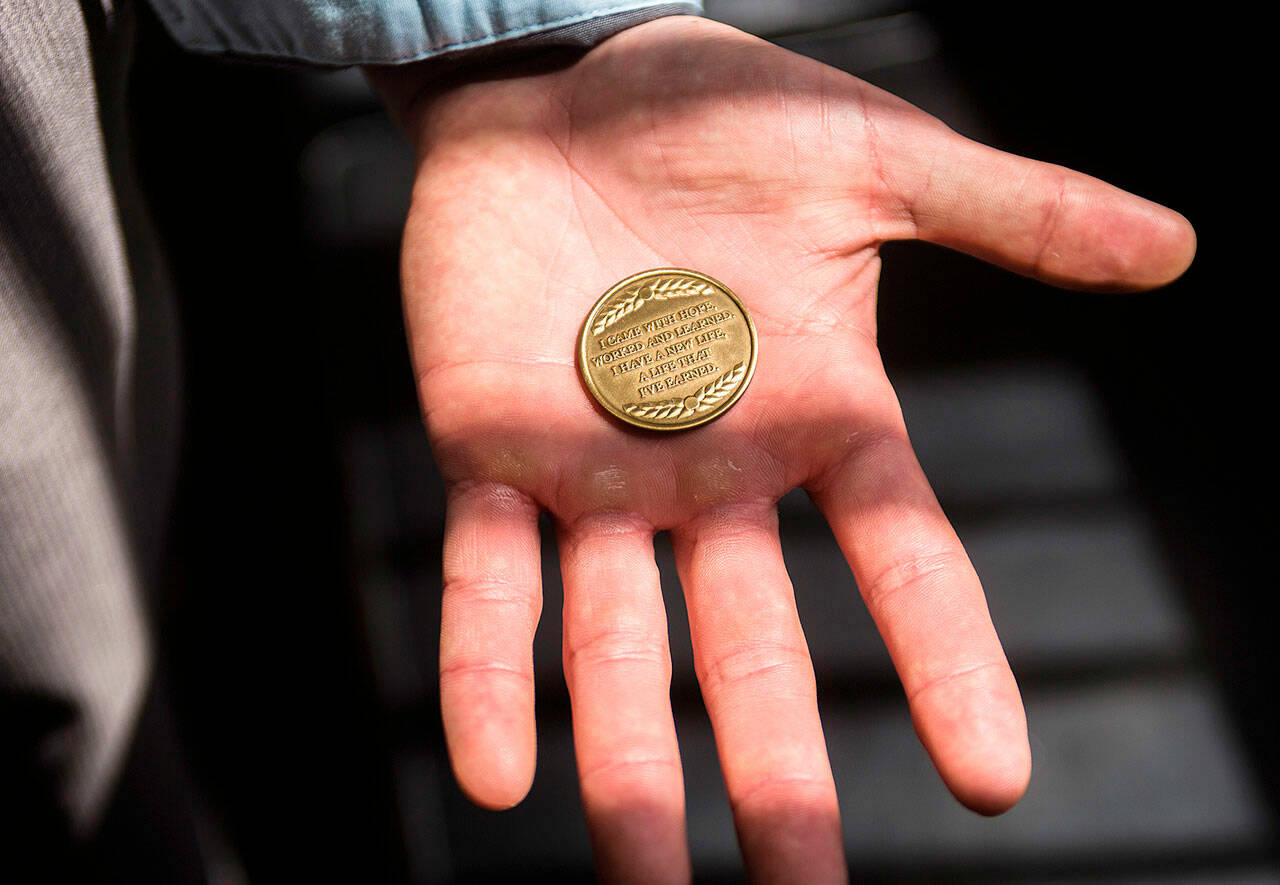By The Herald Editorial Board
The City of Marysville isn’t waiting for the state Legislature to take action on reforms to the state’s standard for dealing with public use and possession of intoxicating drugs; it passed its own law recently to immediately cite those caught using nonprescription drugs in public, referring misdemeanor charges to its own municipal court, as The Herald’s Riley Haun reported Wednesday.
Mayor Jon Nehring, local law enforcement and other officials for other cities in Snohomish County have decried the loss of the “stick” part of a carrot-and-stick approach to dealing with drug addiction in their communities, which had used the threat of prosecution to get people to agree to treatment. That was the result of a 2021 state Supreme Court decision — State vs. Blake — that struck down the state law that made drug possession a felony. The Legislature responded by adopting a stop-gap measure, which expires this July, that reduced possession to a misdemeanor, but only on the third contact with law enforcement, with police and social workers only able to refer people to treatment on the first two contacts. Police and officials have complained that keeping track of prior contacts has been unworkable, and that without the threat of a charge, the referrals carry no weight with those suffering from addiction.
Marysville’s new ordinance makes public drug use a misdemeanor, with a potential penalty of 90 days in jail and up to a $1,000 fine, but again, that’s meant to be used as leverage to get those charged into drug court and treatment.
“Nobody wants to throw a bunch of people in jail,” Nehring told The Herald. “But unfortunately the state of mind for most of these individuals is that without the threat of some form of punishment, they almost never take treatment.”
But even this approach may have its limits; it can prosecute those who use nonprescription drugs in public, but the ordinance presumably can’t be used against simple possession. Yet, even in those circumstances where public drug use can provide that leverage, the new law should help, and similar ordinances could be considered by other cities.
Yet it points to the necessity for the Legislature — which begins its session Jan. 9 — to find a more permanent response to the Blake decision, especially with the current law ending this year. Even with the stop-gap measure in place, there’s been a debate between those who want to decriminalize possession and those who want to find a way to again make possession a felony. Neither is a likely outcome, but making possession a gross misdemeanor — punishable by up to a year in jail and a $5,000 fine — might find support as a compromise.
State Senate Minority Leader John Braun, R-Centralia, recently told Crosscut that felony prosecution and its heavy consequences weren’t necessary as a route toward treatment, though he noted that many in his party might not agree. One bill filed by Republicans last year would have made possession a class C felony. For comparison, a class C felony in Washington state carries a sentence of up to five years in jail and up to a $10,000 fine.
“I’m willing to support something other than a felony … but we can’t go from that to no leverage at all,” Braun told Crosscut, adding: “Our policy on hard drugs, we got it wrong and people die when we get it wrong, it’s the simple truth.”
In the background of this struggle to get those addicted into treatment has been a marked increase in recent years in those addicted to opioids and other drugs and a resulting increase in overdose deaths, particularly from fentanyl. While Washington state ranks among the nation’s lower two-fifths for overdose deaths, according to the Centers for Disease Control and Prevention, it has seen overdose deaths and their rate increase markedly since 2016. A total of 1,102 state residents died of overdoses in 2016, a rate of 14.5 deaths per 100,000 residents; that rose in 2020 to 1,733 deaths and a rate of 22 deaths per 100,000 residents. Just between 2019 and 2020, the number of overdose deaths rose 73 percent.
With local jurisdictions somewhat limited in the consequences they can impose and the weight a simple misdemeanor charge carries, state lawmakers should consider crafting a constitutional response to Blake that could allow charging possession — on the first contact — as a gross misdemeanor.
But to avoid warehousing those with addictions in jail — a punishment that has a history of not being equitably applied by prosecutors and courts — lawmakers as well as local governments will need to ensure that avenues and options for treatment are made amply available for those who will choose the carrot over the stick.
Talk to us
> Give us your news tips.
> Send us a letter to the editor.
> More Herald contact information.

























